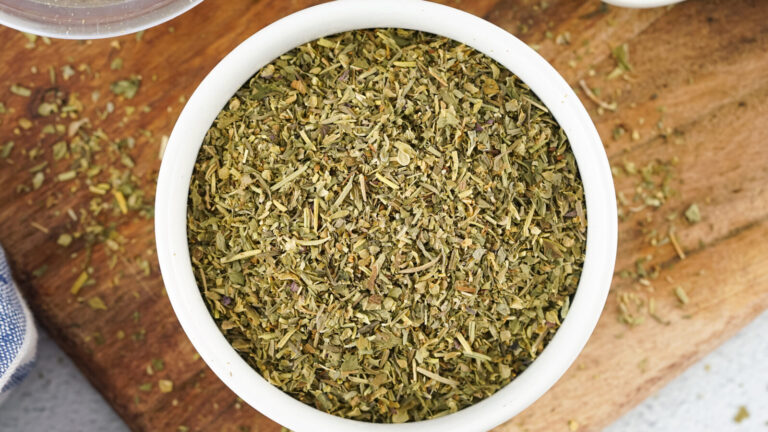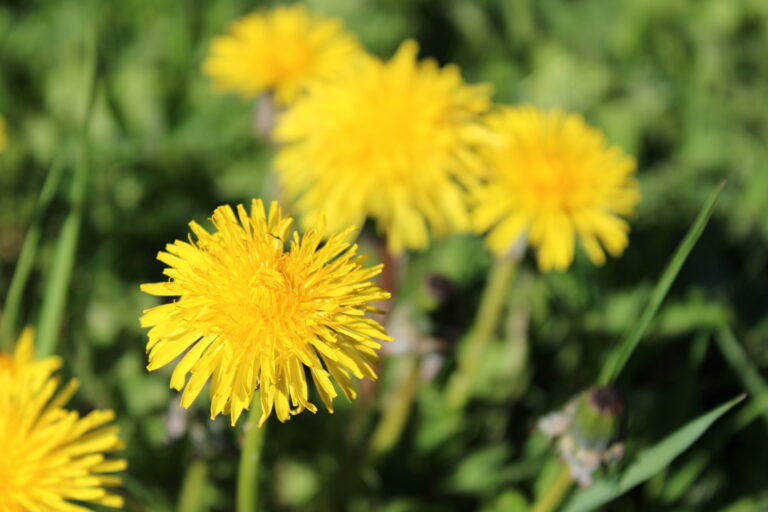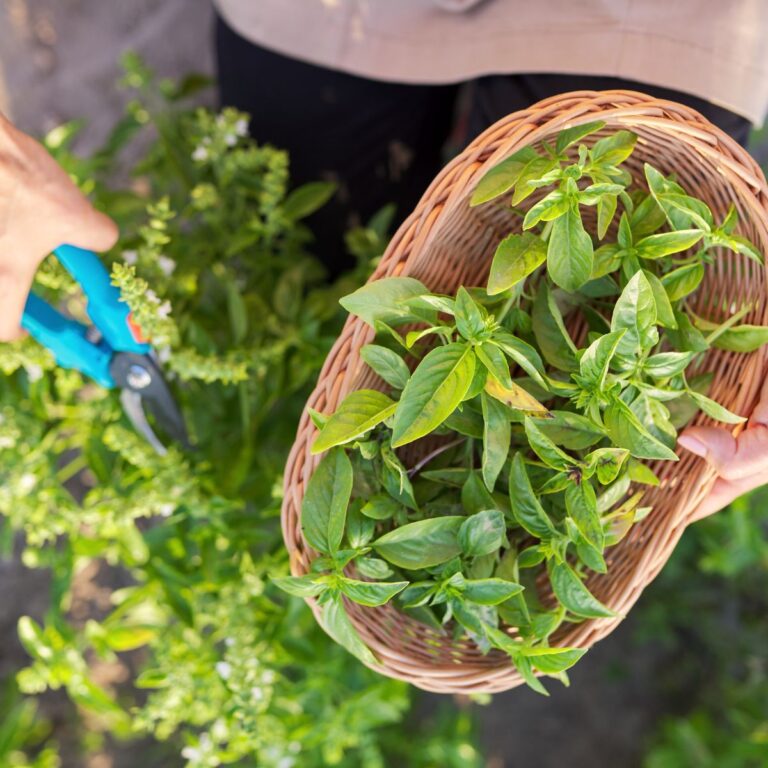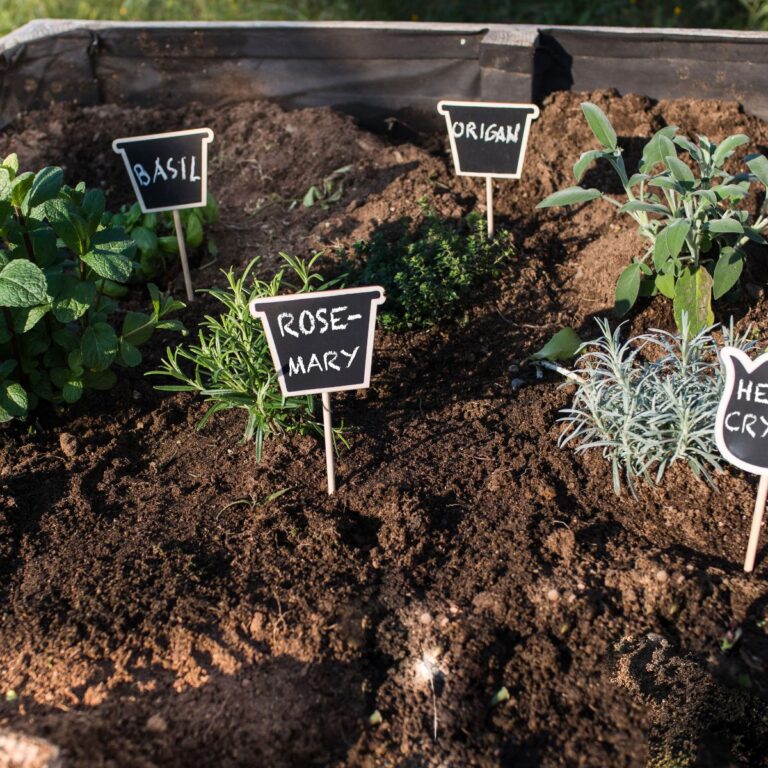This post may contain affiliate links.
Cayenne pepper is a flavorful spice that can add a kick to any dish. Whether sprinkled on avocado toast, added to soups, or used for its health benefits, Cayenne pepper is a common ingredient in most food recipes.
But what do you do if you run out of cayenne pepper while cooking or want something with less spice?
Here are several Cayenne pepper substitutes you can try out if you run out of cayenne pepper, want something milder, or just want to experiment with something different.
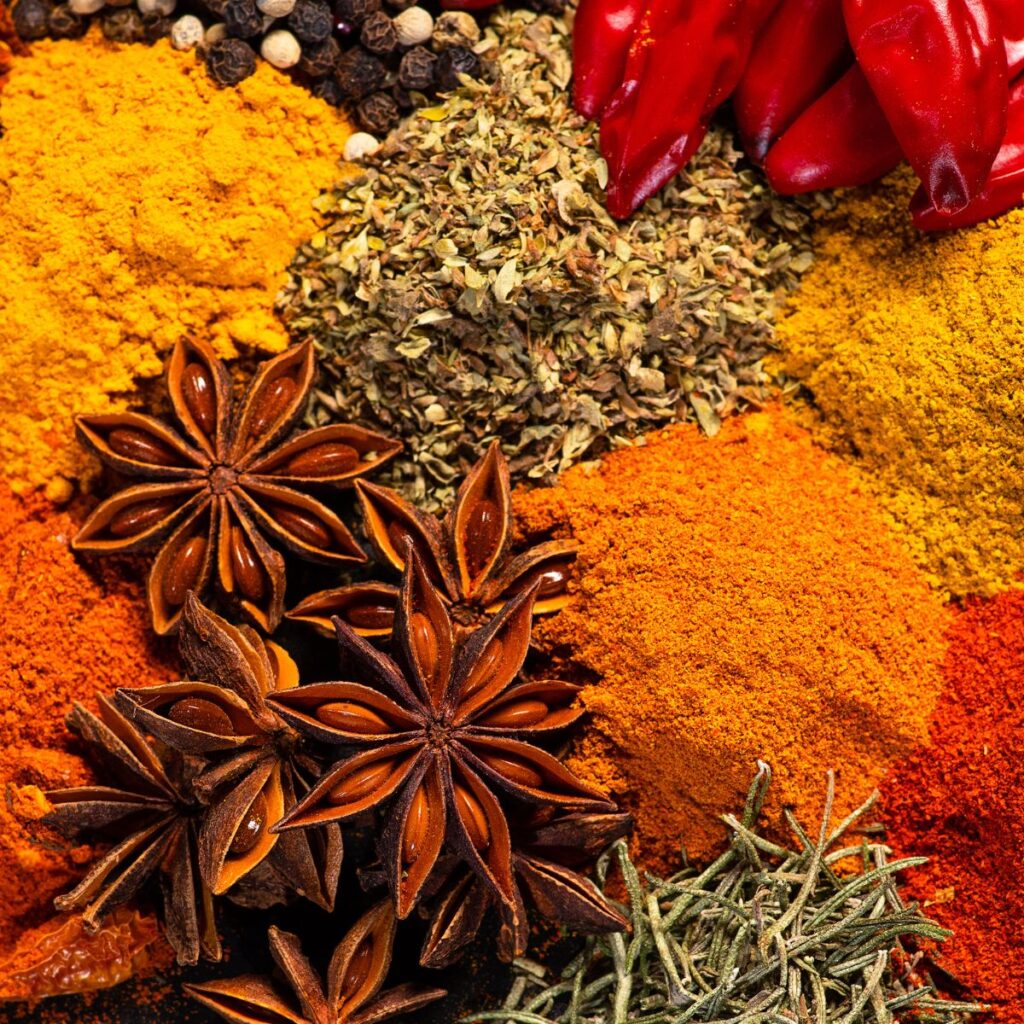
What is Cayenne Pepper?
Cayenne is a vibrant red pepper from the capsicum annum plant family. While these peppers originated in South America, they are now dried and ground into a powder, which is available worldwide.
Cayenne pepper has a moderately spicy flavor and ranks between 30,000 and 50,000 on the Scoville heat scale. Its fiery heat and neutral taste make it popular in soups, stews, dressings, marinades, rice, and meat dishes.

But cayenne pepper isn’t just about heat; it also offers numerous health benefits. It is packed with vitamins C, E, and A, as well as antioxidants. Additionally, cayenne pepper is often used for its medicinal properties and has been found to help alleviate cold symptoms and provide pain relief.
10 Cayenne Pepper Substitutes When You’re in a Pinch
Whether you’re searching for a Cayenne pepper substitute because you ran out of one or need a milder alternative, here are the 10 best Cayenne pepper substitutes you can try today.
1. Red Pepper Flakes
If you’re using cayenne pepper to add spiciness to your dish, red pepper flakes are the perfect substitute. They are also known as crushed red peppers and are made from a combination of different peppers, which may include cayenne peppers.

Red pepper flakes taste similar to cayenne pepper and provide the same level of heat. You can add them to marinades, sauces, soups, and even salad dressings.
How to Substitute: Use one teaspoon of red pepper flakes for each tablespoon of cayenne pepper required.
2. Chili Powder
Chili powder is a fantastic substitute for cayenne pepper as it shares a similar flavor profile and composition. While chili powder can provide a hint of heat, it won’t match the intensity of cayenne pepper.

If you’re aiming for a spicier dish, it’s recommended to use another substitute from the alternatives mentioned earlier or even combine multiple substitutes to achieve your desired level of spiciness.
How to Substitute: To substitute cayenne pepper with chili powder, use a 2:1 ratio.
3. Paprika
Paprika is a wonderful alternative to cayenne pepper. Like chili powder, it comes from peppers in the capsicum annuum family and has a vibrant red color which is similar to cayenne pepper.

Paprika has different flavors, ranging from sweet to hot. For the closest match to cayenne pepper’s taste, choose hot paprika. It will provide a similar level of spiciness and enhance the flavor of any dish.
How to Substitute: Use an equal amount of hot paprika when replacing cayenne pepper.
4. Serrano Peppers
Serrano peppers are an excellent substitute for cayenne pepper. They belong to the same chili pepper family as Cayenne and originate from South America. Serrano peppers are quite hot, ranging between 10,000 to 23,000 on the Scoville heat scale, so they will deliver the same heat level as cayenne pepper.
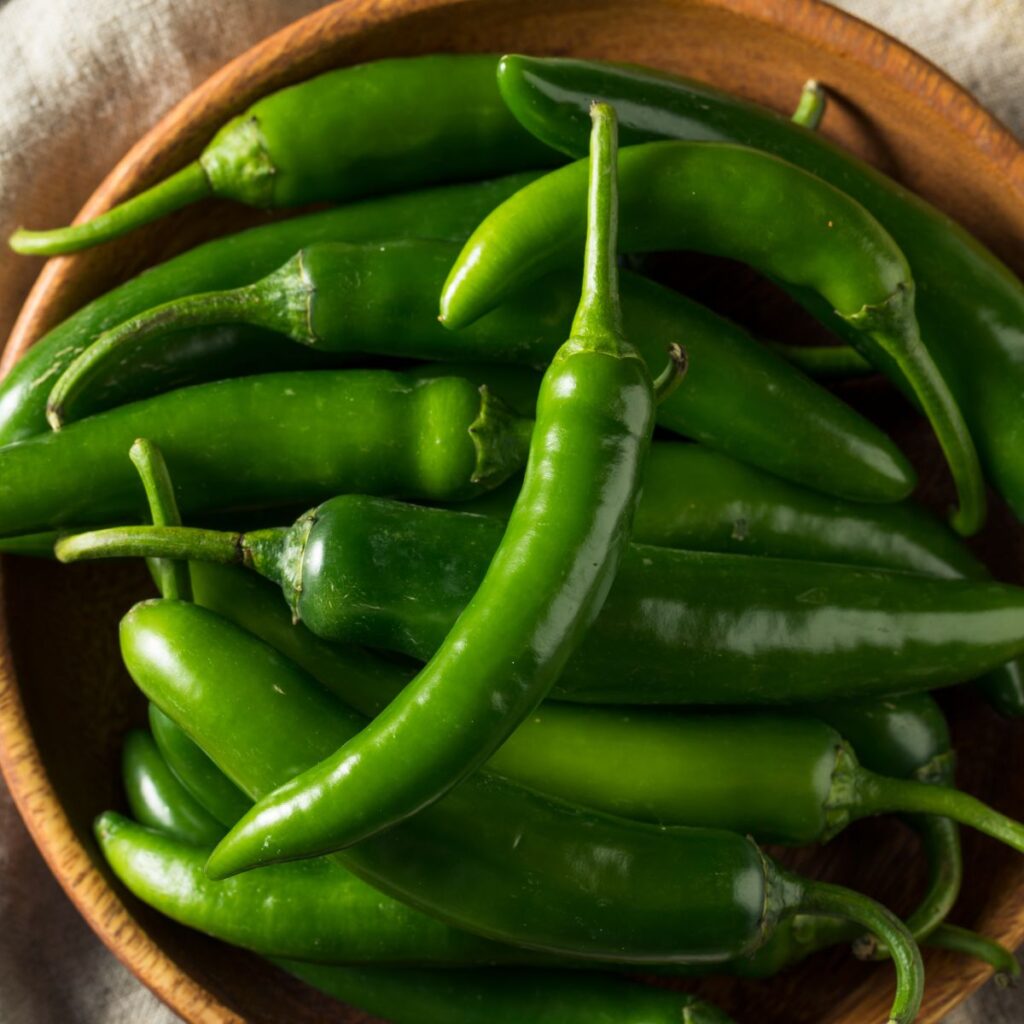
You can use serrano pepper powder for a powdery texture similar to Cayenne or use fresh peppers for a more robust flavor.
How To Substitute: Use an equal amount of serrano peppers when replacing cayenne pepper.
5. Gochugaru
Gochugaru is a Korean chili flake seasoning commonly used in Korean cuisine. Its vibrant red color and smoky heat make it a fantastic substitute for cayenne pepper. Gochugaru is traditionally used in making kimchi, soups, and salads, but you can add it to almost anything.

The heat level of gochugaru can vary, ranging from mildly sweet to fiery hot, depending on the brand. To achieve a taste closest to cayenne pepper, choose the spiciest gochugaru available.
How To Substitute: Use an equal amount of gochugaru when replacing cayenne pepper.
6. Black Pepper
Black pepper is an excellent substitute for cayenne pepper. It has a strong aroma and a mild, peppery taste with hints of citrus. It will add a touch of heat to your dish while enhancing its overall flavor.

However, black pepper may not have the same spiciness as cayenne pepper. If you prefer spicier food, you can combine black pepper with other spices or use it in lighter dishes like dressings and salads.
How To Substitute: Use twice the amount of black pepper when replacing cayenne pepper.
7. Chipotle Powder
Another excellent substitute for cayenne pepper is Chipotle powder, especially when preparing Mexican dishes. It is made from dried and smoked jalapeno peppers, giving it a smoky and mildly spicy flavor.
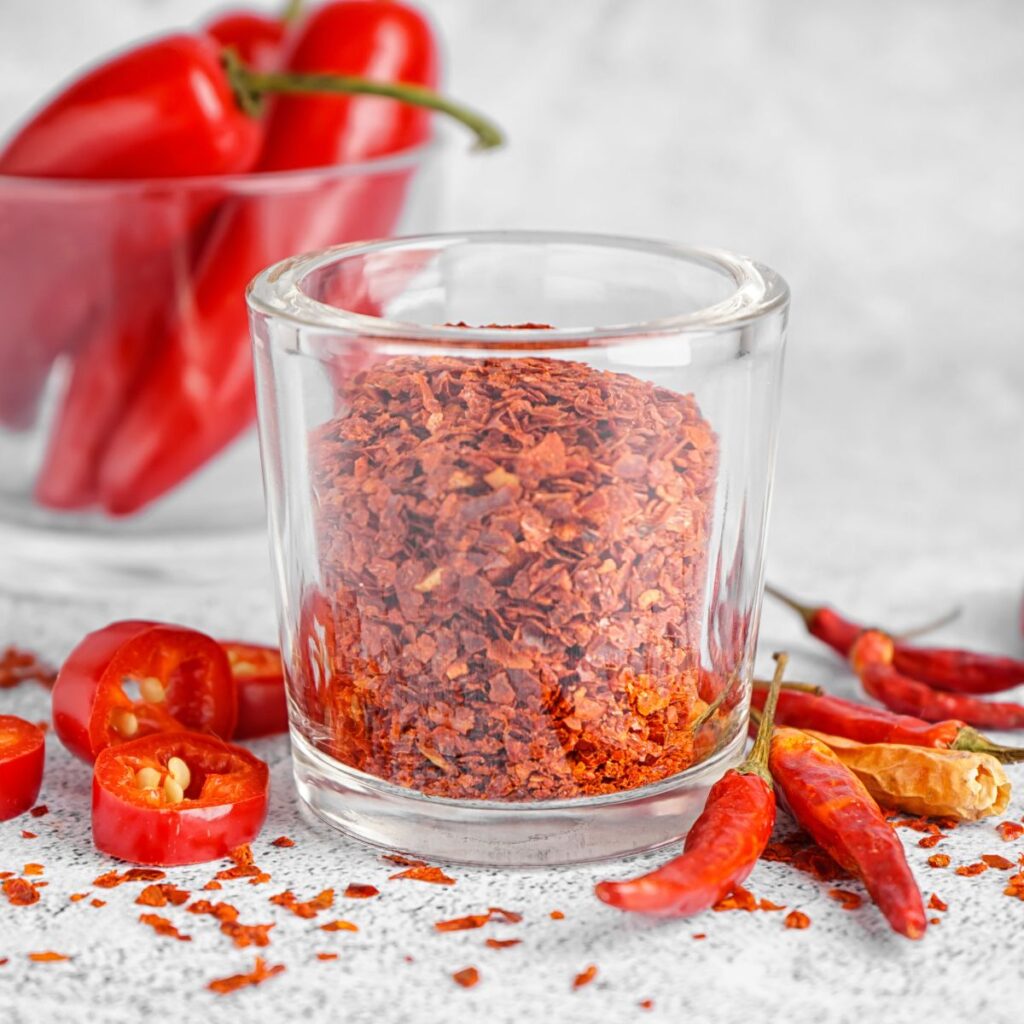
You can use chipotle powder in chili, tacos, and Mexican sauces, and it also complements other local cuisines.
How to Substitute: Use twice the amount of chipotle powder when replacing cayenne pepper.
8. Habanero Powder
If you’re a fan of spicy food and want to kick up the heat from cayenne pepper, habanero powder is an excellent substitute.

Made from small habanero peppers, this powder is known for its intense spiciness and is considered one of the hottest peppers in the world. Scoring between 100,000 and 350,000 on the Scoville scale, habanero powder brings both heat and fruity flavor.
How to Substitute: Use half a teaspoon of habanero powder for every tablespoon of cayenne pepper.
9. Fresh Habanero Pepper
If you can’t find habanero powder, using fresh habanero pepper is a great alternative. It provides a similar intense level of heat to cayenne pepper.

You can use fresh habanero pepper in various dishes that call for cayenne pepper. It works well in sauces and stews. If you want to use it in marinades or dressings, finely chop it or blend it into a paste.
How to Substitute: Use one fresh habanero pepper for every tablespoon of cayenne pepper.
10. Hot Sauce
If you need a quick and easily accessible substitute that you likely already have in your kitchen, hot sauce is a great option. It will provide a similar heat level to your dish and can be added to various foods.

For the same level of spiciness, choose a hot sauce that is fairly spicy, like Tabasco or spicy sriracha.
How to Substitute: Use an equal amount of hot sauce when replacing cayenne pepper.
When To Use A Cayenne Pepper Substitute?
There are several reasons why you might need to use a Cayenne pepper substitute:
- Unavailability: Cayenne pepper may not be readily available in your pantry or local stores. In such cases, using a substitute allows you to still add a similar flavor and heat to your dish.
- Heat preference: Cayenne pepper is known for its spiciness. If you prefer milder heat or want to adjust the level of spiciness in a recipe, a substitute can help you achieve the desired heat level.
- Flavor variation: Cayenne pepper has a unique flavor profile. However, using a substitute can introduce different flavors and nuances to your dish, allowing for more variety in your cooking.
- Allergies or sensitivities: If you have allergies or sensitivities to cayenne pepper, substituting it with other spices or peppers can help accommodate your dietary restrictions.
- Culinary experimentation: Trying different substitutes can be a fun way to explore new flavors and spice combinations in your recipes. It allows you to get creative and discover unique taste profiles.
Is Cayenne Hotter Than Chili Powder?
It’s common to think that “chili powder” is more intense than cayenne pepper, but the truth is quite the opposite. Cayenne powder, made from pure ground peppers, is undoubtedly hotter than chili powder.
In fact, cayenne pepper is ten times spicier than jalapeños. On the other hand, chili powder is a mixture of different peppers, which generally have lower heat levels on the Scoville scale.
Conclusion
Fresh, ground and pureed cayenne pepper is known for adding spiciness and a touch of smokiness to various recipes across different cuisines. However, its unique flavor may not suit everyone’s taste buds, making it essential to have a suitable spice substitute readily available in your pantry.
Thankfully, you can rely on my list whenever you find yourself asking, “What can I use in place of cayenne pepper?”
